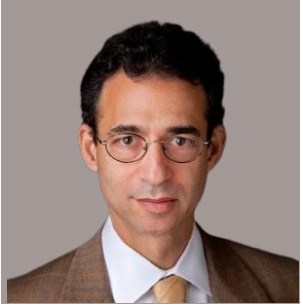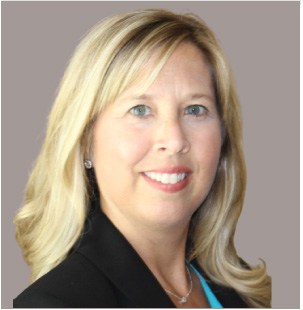Season 3: Episode #79
Podcast with Dr. Rich Parker, Chief Medical Officer, Arcadia and Jennifer Polello, Senior Director of Quality and Population Health at Community Health Plan of Washington
 Hosted by Paddy Padmanabhan
Hosted by Paddy Padmanabhan 
Share
In this episode, Dr. Rich Parker and Jennifer Polello discuss their vaccination distribution program, challenges around vaccine hesitancy, and how they have overcome this.
Community Health Plan of Washington is a not-for-profit health plan that caters to the underserved and non-English speaking communities. Their role has been to support the community health centers and getting members educated about the vaccine. One of the most successful vaccination outreach programs has been their text messaging campaign, with a nearly 80% success rate.
Arcadia works specifically with data aggregated from disparate data sources like claims, EHR, lab, state health information exchange, social determinants of health, and others. This longitudinal record of each member helps them risk stratify and identify gaps in care, thereby helping them with their vaccination outreach and distribution priorities. Take a listen.
Show Notes |
||||
| 04:36 | In terms of getting ready for vaccine distribution, our role really has been to support our community health centers around getting members aware and educated around the vaccine. | |||
| 09:25 | Having access to data, the demographic and EHRs combined with all of that other data, gave us actionable longitudinal picture of the member and enabled us to assist our community health centers for needs they might have. | |||
| 16:41 | We had nearly 80% success rate from our text campaign. | |||
| 20:09 | I am very enthusiastic about using data to help push the vaccination rates up as high as possible. | |||
Q. Jennifer, can you tell us a little bit about the Community Health Plan in Washington and the populations that you serve.
Jennifer: Community Health Plan of Washington is a not-for-profit health plan. We were founded by 20 federally qualified health centers almost 30 years ago. Now we’ve got approximately two hundred fifty thousand members through our Medicaid, Medicare, which also includes special needs population, and then Cascade Care, which is a new line of business for us that we started this year. Our network consists of one hundred hospitals across the state and one hundred and seventy-four clinics. We have more than twenty-seven hundred primary care providers and over fourteen thousand specialists. The thing that really makes our organization unique is that we believe in the power of community and our mission is to serve our members and our communities across the state of Washington.
Q. Can you start by telling us how long ago you had to start planning for the vaccine. Tell us about the program itself and what have been some of your challenges in rolling out the vaccine to populations?
Jennifer: The planning around vaccine distribution started well before we had an approved vaccine, in terms of looking at eligibility, what would be available and how we were going to roll this out. Our main emphasis was providing support to our community health centers across our network and trying to help them with any logistic challenges or education and awareness need. That’s where our partnership with Arcadia really took off. In 2020 we had great success using the Arcadia outreach module when the pandemic started for things like what exactly is coronavirus, where to go for testing, which evolved to benefit reminders and connections to our community program teams for referrals to social service needs for things like food security. So, we kind of laid the groundwork for all of this in 2020 when the pandemic started and using all of these resources and distributing that information via the outreach functionality within Arcadia. In terms of getting ready for vaccine distribution, our role really has been to support our community health centers around getting members aware and educated around the vaccine.
Q. Rich, tell us about your analytics and about your involvement in the vaccine outreach effort with Community Health Plan.
Rich: Arcadia is a company dedicated to assisting healthcare networks and to some extent, payers, mostly commercial payers, deal with all the disparate data that is out there. So, getting all the data together from different sources, whether it is claims data, electronic health record data, lab data, state health information exchange data, social determinants data, and aggregating it, cleaning it up, making it useful. And then we have a set of analytics that sits on top of that data for each of our customers, allowing them to succeed in what we call value-based care, basically improving the health of the community.
As for vaccines, I have always been interested in vaccines since I started medical school and fortunately, we have these fantastic vaccines available so quickly to help deal with this epidemic. Arcadia has worked with many customers in helping risk-stratify patients. That is figuring out who is at risk for COVID, educating patients as to when they should ask for care or when vaccines are available, where can they get them? And then also looking at gaps in care. So, if people who should have had a vaccine didn’t get it, we can identify those gaps and help our customers fill them.
Q. Where are you getting all this data from? Can you share a couple of insights that you were able to get from the data that helped you to enable Community Health Plan and Jennifer’s team to drive better outcomes or outreach?
Rich: Our main sources of data are from the electronic health record. We get a download of data that’s extremely up to date and we get it usually on a monthly basis and the claims data. Which means that every time a patient is seen either in a doctor’s office or in a hospital setting a claim is generated. That information comes back to us and we can use that to figure out what’s going on with the population. And so that information, for example, at CHPW where Jen works, it would allow us to understand, which zip codes are doing better with vaccination, which are doing worse, and where do we have to focus our efforts more accurately and intensively.
Jennifer: We relied heavily on our Arcadia Analytics platform during this time. We have 20 cases connected to the Arcadia platform. We have got our data from all those organizations. We have also added ADT data, which is admin discharge transfer data. So, we get information from the hospitals and we also have a separate lab feed. So, all that data really allows us that longitudinal picture of what is going on with the member. This really allowed us to help the community health centers know, who has got care gaps, who hasn’t been seen, who’s at risk for COVID.
We got almost an 80 percent success rate with our outreach efforts, which is high considering we’re dealing with Medicare and Medicaid members that typically are a little bit harder to reach. And so, having access to that data, the demographic and contact information in the EHRs combined with all of the other data, really gave us that actionable longitudinal picture of the member and enabled us to assist our community health centers in reaching those numbers for whatever needs they might have.
Q. Can you tell us about the insights that you got from the platform and the added tools that Arcadia may have deployed? Anything that came out that surprised you or was in some way unanticipated and helped to really improve the outcomes that you were going after?
Jennifer: We’ve got lots of different registries available to us in the platform. And one of the most utilized is our patient registry and being able to sort that registry by members that are at most risk. So, we can sort by the highest risk members, we can sort by members that have a lot of care gaps or chronic conditions. All that flexibility within the platform allows us to tailor different outreach methods within the CHPW language preferences. That was one thing that came in handy over 2020 because we relied on Arcadia for outreach and translated into lots of different languages, which was helpful and used the accurate contact information and targeted those messages by zip code. So, there was not any one thing that stood out. It was kind of a combination of all the different functionalities within the platform that we were able to tailor to each of our centers’ needs at the time.
Q. Can you tell us about some of the challenges that you have to deal with when you’re pulling all these data sources together and what you’ve had to overcome to make your algorithms and your risk stratification models meaningful?
Rich: There are some countries that have a single health record for everyone in the country. And that, in retrospect, seems like a really good idea. But it’s not what we have in the United States. We have many EHRs and still have some people on paper, but most people are on some computer system now. And since it’s healthcare data, it has to be very accurate. Now, sometimes we have challenges with getting corrupted data or incorrect data that could come in the form of a claims file from a payer that has a problem in it. We have very sophisticated tools where we’re usually able to identify the issue with the data and quickly fix it. Healthcare data is complicated, but we have years of experience doing this and the analytics are only as good as the data source that sits underneath it. We spend a lot of time and effort to make sure the data is correct for each customer.
Jennifer: We have a team that works directly with the Arcadia team to ensure that data quality is up to speed and the integrity of the data is there. We have got lots of different connectors just in the EHRs alone. There’s 20 different data points and data connectors there which are with 20 different organizations and each time they make a change to their workflow, it could impact how the data gets back to Arcadia. So, it’s a constant management of the data with our centers to make sure that data quality and data integrity is first and foremost.
Q. You’re addressing a population that may not be as technologically enabled, especially if you are talking about lower income populations. So, what kind of modalities do you use in your outreach as far as the vaccination program goes?
Rich: One of the big learnings for us is that text outreach is the best way to go. In the old days, we were sending letters, then we were making phone calls, and then a lot of people switched from landlines to cell phones and then a lot of people got a lot of junk calls and stopped answering their phones. But we have learned through experience that most people look at texts on their cell phone. We have now sent over three million text messages out to patients on behalf of our customers, all healthcare related, a lot of it around vaccine education, gaps in care for text messages. The messages are short. And the other thing we have learned about text messages is we can embed a URL. So, for example, if there’s a longer message that wants to get out to its patients, they can put a URL in there and the patient or the customer can click on that and get the website that CHPW wants them to see.
Q. How does that work for you, Jennifer?
Jennifer: It worked exceptionally well. As I mentioned, we had that nearly 80 percent success rate and that was from our text campaign. So, I completely agree with Dr. Rich that text is the way to go. We had very good success rates in reaching our members, and the ability to embed additional information was helpful, because you can send a real short message and then have links for additional information. In terms of vaccine, education, and awareness, we were able to a link to our state’s Phase Finder to help folks understand when it was their turn to get the vaccine. And then over the last year, it was great for driving folks to testing locations and benefit reminders. It was invaluable in terms of directing members exactly where we wanted them to go.
Q. We very often hear about vaccine hesitancy and a significant percentage of the American population do not want to be vaccinated or have concerns. Is that a problem at your institution?
Rich: Absolutely. Vaccine hesitancy is a big problem. Probably right now, about a third of people in the United States are reluctant to get the COVID vaccine. We know that people that are over the age of fifty-five are more likely to accept the vaccine. Younger people are less likely to accept the vaccine. And we can use our data to figure out where the gaps in care are.
Jennifer: I think we we are pretty much in alignment with that as well. We serve the underserved and a lot of those communities are non-English speaking and have different cultural beliefs. So, there’s a lot of education and general awareness that needs to take place. Our strategy has been to reach out to those community leaders as potential models or potential leaders that can help distribute vaccine education and awareness information.
Q. Can you share one best practice for your peers in the industry? One each based on your experience, especially around vaccines.
Rich: I am very optimistic, very enthusiastic about using data to help push the vaccination rates up as high as possible. I would say that without data, you are just operating in the dark. You have no idea what is going on with data. With data, we are not going to get perfect compliance, but we will find out who has been vaccinated, who still needs vaccines, and then we can target our outreach to the people that are still outstanding so we can do the best possible effort to get as many people vaccinated as possible.
Jennifer: Dr. Rich, I completely agree with that. Arcadia platform and access to this integrated data and access to this longitudinal record of our members, the ability to sort by risk and look at care gaps to find out who had the first vaccine, who needs the second one, all those different functionalities really allow us to be in the forefront and at the top end of the curve on reaching our members. I think the key is that we got timely data and data that really connects us back to the needs of our members and our communities.
About our guest

Dr. Parker serves as Chief Medical Officer for Arcadia with overall responsibility for the design and implementation of clinical strategies, input into the roadmap and development of Arcadia’s technology and service programs, thought leadership in support of providers transitioning to value-based care, and strategic advisory work for physician leaders at Arcadia’s clients.
Previously, Dr. Parker was an internist with a 30-year history at Beth Israel Deaconess Medical Center. From 2001 until 2015, Dr. Parker served as the medical director and chief medical officer for the 2,200 doctor Beth Israel Deaconess Care Organization. He oversaw the physician network evolve from a fee-for-service payment system to a nationally recognized global payment pioneer Accountable Care Organization.

Jennifer serves as the Senior Director of Quality and Population Health at Community Health Plan of Washington. She has over 20 years of extensive experience across the healthcare continuum in the areas of public health, chronic disease management, quality improvement, health policy, population health management and clinical informatics. She has exercised this experience from several points of view across the health care environment and has demonstrated expert facilitation skills in leading teams of clinicians, nurses and physicians through the transformation process of patient care in the ambulatory setting.
Jennifer has worked on regional health information exchange projects and assisted in the design of a clinical decision support tool for patients with type 2 diabetes. She has also served as an Adjunct Clinical Assistant Professor mentoring PharmD candidates at Washington State University.
Recent Episodes
About the host
Paddy is the co-author of Healthcare Digital Transformation – How Consumerism, Technology and Pandemic are Accelerating the Future (Taylor & Francis, Aug 2020), along with Edward W. Marx. Paddy is also the author of the best-selling book The Big Unlock – Harnessing Data and Growing Digital Health Businesses in a Value-based Care Era (Archway Publishing, 2017). He is the host of the highly subscribed The Big Unlock podcast on digital transformation in healthcare featuring C-level executives from the healthcare and technology sectors. He is widely published and has a by-lined column in CIO Magazine and other respected industry publications.
Never miss an episode
The only healthcare digital transformation podcast you need to subscribe to stay updated.
Stay informed on the latest in digital health innovation and digital transformation